Home

PCOS & PCOD

PCOS Hair Growth: Causes, Symptoms, and Effective Treatment Options
In this Article
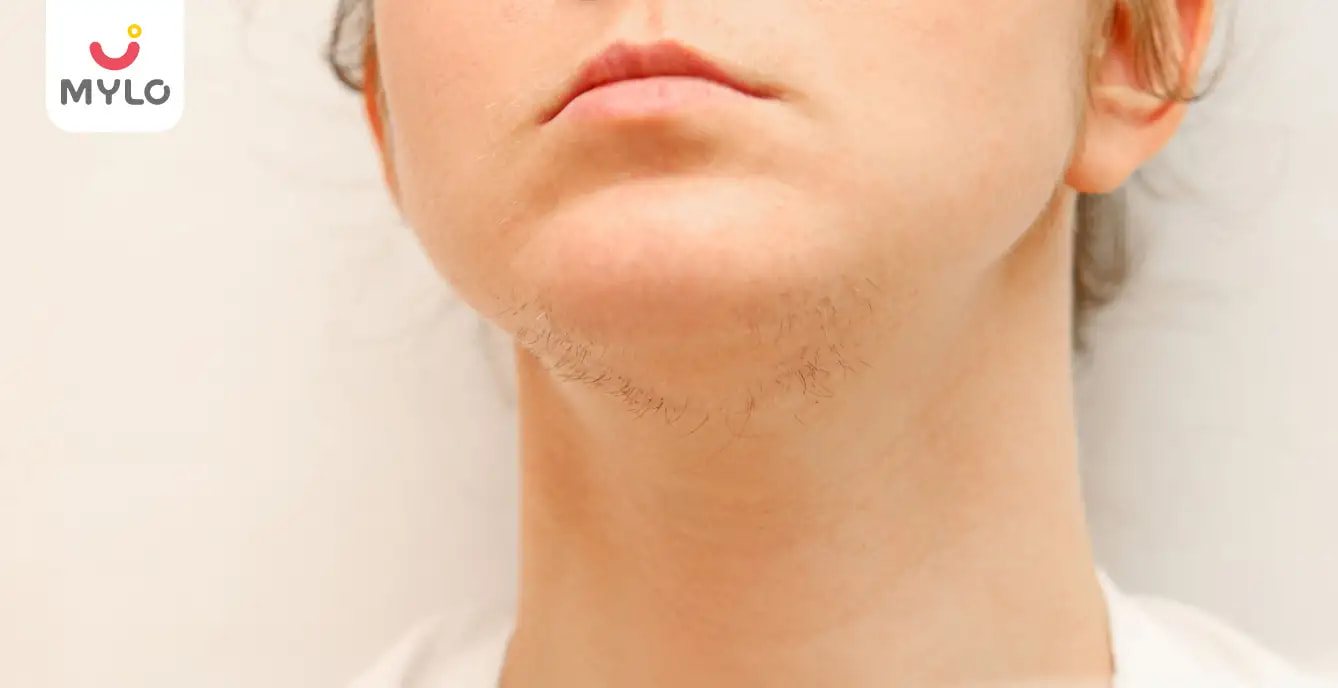
PCOS & PCOD
PCOS Hair Growth: Causes, Symptoms, and Effective Treatment Options
Updated on 8 November 2023



Medically Reviewed by
Dr. Shruti Tanwar
C-section & gynae problems - MBBS| MS (OBS & Gynae)
View Profile

On an average, a person looks at the mirror around 30 times a day and more often than not, it is our flaws we focus on. Whenever Tripti looked in the mirror, she would see the unwanted hair on her cheeks, chin and jawline and behind them the recurring acne and the scars they would leave behind. As a woman struggling with PCOS hair growth, she was constantly looking for ways to get rid of them.
So, if you find yourself in a similar position or would like to know more about this condition, then join Tripti through this comprehensive guide as we explore the causes, symptoms and treatment options for excess hair growth in PCOS.
Is Unwanted Hair Growth Common Among Women with PCOS?
Unwanted hair growth is indeed common among women with PCOS. This condition occurs due to an imbalance in hormone levels, specifically an increase in androgen hormones such as testosterone. Androgens are typically found in higher levels in men, but women with PCOS may have an excess of these hormones, leading to the development of male-pattern hair growth.
This excess hair growth can lead to PCOS facial hair, PCOS chin hair and even PCOS chest hair. Some other areas where women may notice unwanted hair include the abdomen, back and inner thighs.
What are the Symptoms of PCOS Hair Growth?
Hair growth caused by PCOS can manifest in various ways and may differ from person to person. The most common symptom is the growth of thick, coarse hair on the face, especially on the upper lip, chin, and jawline.
Some women may also notice hair growth on the chest, back, and stomach. This excessive hair growth can lead to a decrease in self-esteem and confidence, affecting the overall well-being of individuals with PCOS. It is essential to identify these symptoms and seek appropriate treatment options.
You may also like : PCOS Self Care: How to Nurture Your Body and Mind
What are the Causes of PCOS Hair Growth on Face and Body?
There are several causes of PCOS-related hair growth on the face and body. Understanding these underlying factors can help in determining the most effective treatment options. Here are five common causes:
1. Hormonal Imbalance
PCOS is characterized by an imbalance in hormone levels, particularly a higher concentration of androgens. This hormonal imbalance triggers excessive hair growth.
2. Genetic Predisposition
Certain genetic factors can make some women more susceptible to PCOS and its associated symptoms, including unwanted hair growth.
3. Insulin Resistance
Insulin resistance is commonly observed in women with PCOS. It can lead to an increase in androgen production, contributing to hair growth.
4. Inflammation
Chronic inflammation has been linked to PCOS and hirsutism. Inflammatory substances can disrupt the normal functioning of hormones, leading to excess hair growth.
5. Increased Sensitivity of Hair Follicles
Women with PCOS may have hair follicles that are more sensitive to androgen hormones. This heightened sensitivity can result in the development of hirsutism.
You may also like : PCOS Acne: The Ultimate Guide to Causes, Treatment and Management
How to Stop Facial Hair Growth Due to PCOS Naturally?
If you're looking for natural ways to stop facial hair growth due to PCOS, here are five effective methods:
1. Healthy Diet
Maintaining a well-balanced diet can help regulate hormone levels and reduce excessive hair growth. Incorporate foods rich in omega-3 fatty acids, antioxidants, and fiber. Avoid processed foods and sugary snacks.
2. Regular Exercise
Engaging in regular physical activity can help improve insulin sensitivity and hormone balance. Aim for at least 30 minutes of exercise, such as walking, jogging, or yoga, on most days of the week.
3. Herbal Remedies
Certain herbal teas such as PCOS Tea, have anti-androgenic properties and can help reduce hair growth. Powered by ingredients like Shatavari, chamomile, Manjishtha and Shankh Pushpi, this tea helps manage PCOS symptoms like excessive facial and body hair.
4. Stress Management
High stress levels can worsen PCOS symptoms, including unwanted hair growth. Practice stress-reducing techniques like meditation, deep breathing exercises, and mindfulness.
5. Natural Hair Removal Methods
Opt for natural hair removal methods like threading, waxing, or sugaring. These methods can help remove unwanted hair temporarily and reduce the appearance of hair growth.
You may also like : PCOS Weight Loss in 1 Month How to Shed Pounds Fast
Medicines and Treatments to Stop PCOS Hair Growth on Face and Body
While natural remedies may be effective for some individuals, others may require medical intervention to address unwanted hair growth. Here are five common medicines and treatments:
1. Oral Contraceptives
Birth control pills containing estrogen and progestin can help regulate hormone levels and reduce androgen production, thus inhibiting hair growth. These pills are more helpful, especially when the progestin component has anti-androgenic activity too.
2. Anti-Androgen Medications
Medications such as spironolactone and finasteride can block the effects of androgens, reducing unwanted hair growth.
3. Topical Creams
Prescription creams containing eflornithine can help slow down the growth of PCOS chin hair and facial hair by inhibiting specific enzymes necessary for hair growth.
4. Laser Hair Removal
This procedure uses laser technology to target and destroy hair follicles, resulting in long-term hair reduction. Multiple sessions are usually required for optimal results.
5. Electrolysis
Electrolysis involves using heat or chemical energy to destroy hair follicles permanently. It is a suitable option for individuals with light or fine hair.
FAQs
1. Can hair growth from PCOS be reversed?
While hair growth caused by PCOS cannot be completely reversed, it can be effectively managed. With the right treatment options, hormone balance, and lifestyle modifications, you can significantly reduce the growth of unwanted hair.
2. What does PCOS hair growth look like?
PCOS-related hair growth appears as thick, dark, and coarse hair on the face, chest, back, abdomen, and other areas. It often follows a male-pattern distribution, such as facial hair on the upper lip, chin, and jawline.
3. What is the best technique for PCOS facial hair removal?
The best techniques for removing PCOS facial hair include waxing, threading, laser hair removal, and electrolysis. Consult with a dermatologist or healthcare professional to determine the most suitable option for you.
Final Thoughts
PCOS hair growth can be distressing, affecting the self-esteem and quality of life of individuals. Understanding the causes, symptoms, and treatment options is crucial for effectively managing this condition. Whether you choose natural remedies or seek medical intervention, there are solutions available to help you overcome unwanted hair growth. Consult with healthcare professionals to develop a personalized treatment plan and regain your confidence.
References
1. Spritzer PM, Marchesan LB, Santos BR, Fighera TM. (2022). Hirsutism, Normal Androgens and Diagnosis of PCOS. Diagnostics (Basel).
2. Spritzer PM, Barone CR, Oliveira FB. (2016). Hirsutism in Polycystic Ovary Syndrome: Pathophysiology and Management. Curr Pharm Des.





Medically Reviewed by
Dr. Shruti Tanwar
C-section & gynae problems - MBBS| MS (OBS & Gynae)
View Profile


Written by
Anupama Chadha
Anupama Chadha, born and raised in Delhi is a content writer who has written extensively for industries such as HR, Healthcare, Finance, Retail and Tech.
Read MoreGet baby's diet chart, and growth tips

Related Articles
Related Questions
Hello frnds..still no pain...doctor said head fix nhi hua hai..bt vagina me pain hai aur back pain bhi... anyone having same issues??

Kon kon c chije aisi hai jo pregnancy mei gas acidity jalan karti hain... Koi btayega plz bcz mujhe aksar khane ke baad hi samagh aata hai ki is chij se gas acidity jalan ho gyi hai. Please share your knowledge

I am 13 week pregnancy. Anyone having Storione-xt tablet. It better to have morning or night ???

Hlo to be moms....i hv a query...in my 9.5 wk i feel body joint pain like in ankle, knee, wrist, shoulder, toes....pain intensity is high...i cnt sleep....what should i do pls help....cn i cosult my doc.

Influenza and boostrix injection kisiko laga hai kya 8 month pregnancy me and q lagta hai ye plz reply me

RECENTLY PUBLISHED ARTICLES
our most recent articles
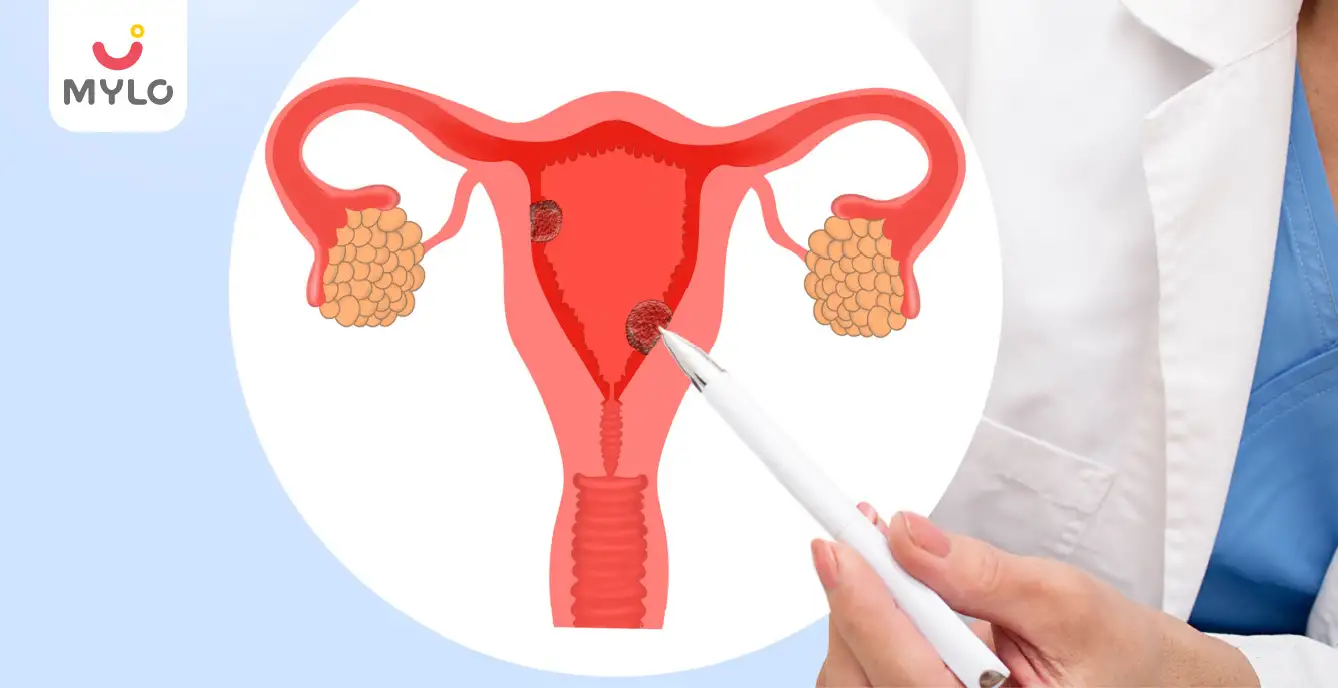
Women Specific Issues
Endometrial Hyperplasia: The Ultimate Guide to Understanding Its Causes and Treatment

Lifestyle
Lights, Camera, Baby Bump: Movies to Watch During Pregnancy
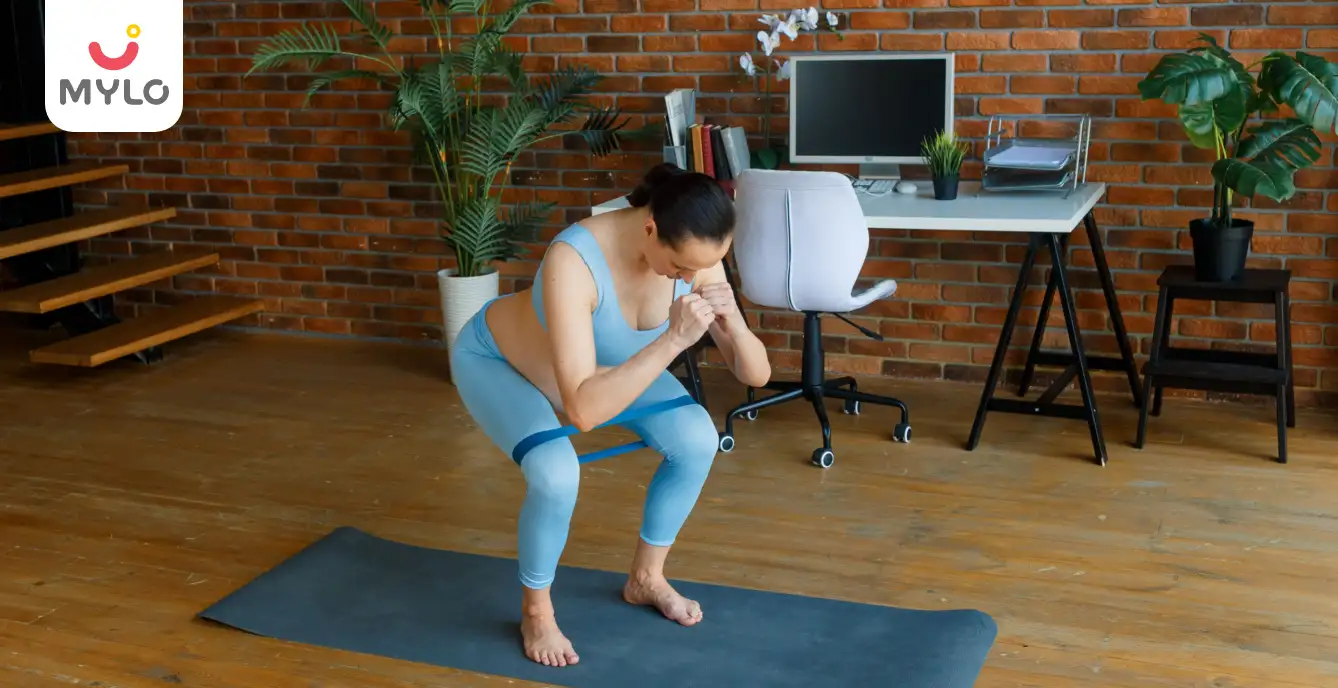
Exercise & Fitness
Squat During Pregnancy Benefits & Precautions
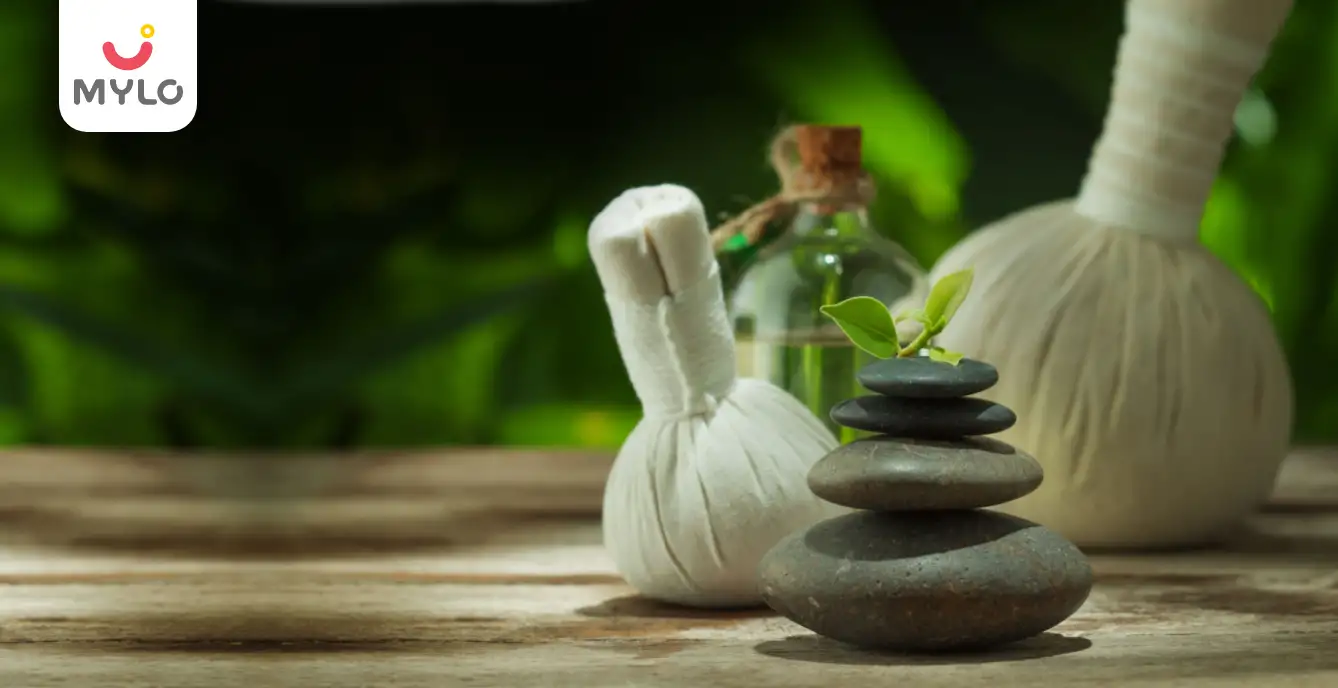
Common Health Problems
The Ultimate Guide to Thyroid Treatment in Ayurveda

Pimples and Acne
Ayurvedic Treatment for Acne: Holistic Healing for Clear Skin
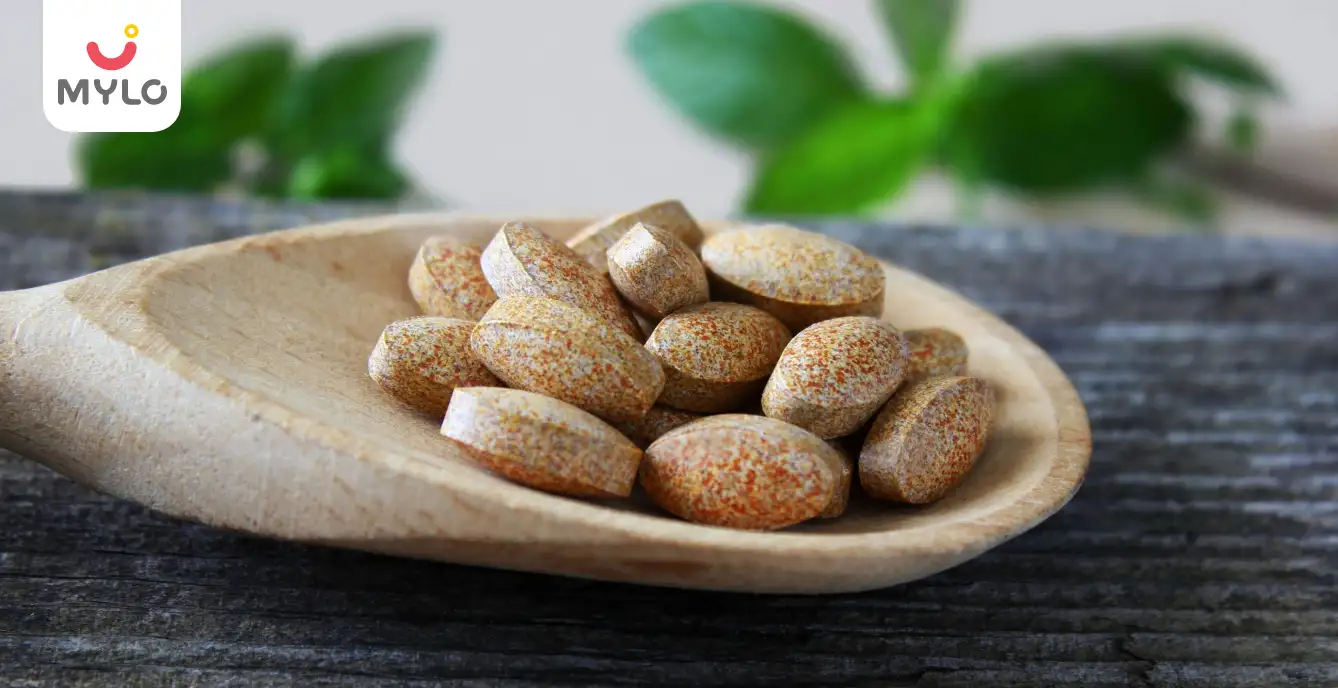
Ayurveda & Homeopathy
Gokshuradi Guggulu: Ayurveda's Solution for UTI and Kidney Support
- The Surprising Benefits of Dark Chocolate for Periods
- How to Reduce Air Pollution in Your Daily Life
- Normal Prolactin Levels to Get Pregnant: What You Need to Know
- What Causes Low HCG Levels in Early Pregnancy & How to Increase It?
- Top 10 Babymoon Destinations in India for Expecting Parents
- Understanding the Reasons & Solutions for a Baby Not Eating Food
- The Ultimate Guide on How to Delay Periods Naturally
- গর্ভাবস্থায় আলুবোখরা: উপকারিতা ও ঝুঁকি | Prunes During Pregnancy: Benefits & Risks in Bengali
- গর্ভাবস্থায় হিং | ঝুঁকি, সুবিধা এবং অন্যান্য চিকিৎসা | Hing During Pregnancy | Risks, Benefits & Other Treatments in Bengali
- স্তনের উপর সাদা দাগ: লক্ষণ, কারণ এবং চিকিৎসা | White Spots on Nipple: Causes, Symptoms, and Treatments in Bengali
- গর্ভাবস্থায় পোহা: উপকারিতা, ধরণ এবং রেসিপি | Poha During Pregnancy: Benefits, Types & Recipes in Bengali
- গর্ভাবস্থায় মাছ: উপকারিতা এবং ঝুঁকি | Fish In Pregnancy: Benefits and Risks in Bengali
- গর্ভাবস্থায় রেড ওয়াইন: পার্শ্ব প্রতিক্রিয়া এবং নির্দেশিকা | Red Wine During Pregnancy: Side Effects & Guidelines in Bengali
- ইনার থাই চ্যাফিং: কারণ, উপসর্গ এবং চিকিৎসা | Inner Thigh Chafing: Causes, Symptoms & Treatment in Bengali


AWARDS AND RECOGNITION

Mylo wins Forbes D2C Disruptor award

Mylo wins The Economic Times Promising Brands 2022
AS SEEN IN

- Mylo Care: Effective and science-backed personal care and wellness solutions for a joyful you.
- Mylo Baby: Science-backed, gentle and effective personal care & hygiene range for your little one.
- Mylo Community: Trusted and empathetic community of 10mn+ parents and experts.
Product Categories
baby carrier | baby soap | baby wipes | stretch marks cream | baby cream | baby shampoo | baby massage oil | baby hair oil | stretch marks oil | baby body wash | baby powder | baby lotion | diaper rash cream | newborn diapers | teether | baby kajal | baby diapers | cloth diapers | laundry detergent 6472 | lactomama lactation granules |




